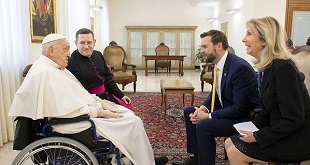
ANALYSIS: ‘You’re to blame’. District bosses grill government officials, minister
The trucks rolled up suddenly, without warning. But soon enough, the district Chief Accounting Officer (CAO), Esau Ekachelau, was informed of their mission: They had brought 800 bags of cassava cutting for distribution to farmers in the district. It was a head-scratching moment for Ekachelau.
The first challenge was where to store 800 bags of cassava cutting safely. Since he had not been warned of their imminent arrival, the CAO did not have storage space ready for them. He also did not know how to ensure that they are not damaged before they got to the farmers. And, of course, he had not budgeted for any resources for the project nor mobilised the staff to implement it. Finally, he was not sure that the intended recipients; the farmers, were adequately prepared to receive the cassava cuttings and use them productively.
The cassava cuttings were part of a government programme called Operation Wealth Creation (OWC) which involved supplying farmers with free in-puts. As CAO, under the Local Government law, Ekachelau was in charge of such `developmental’ programs. It was his job to plan for them, and mobilise district staff to implement them since the CAO is the head of all public servants at the district level.
But as Ekachelau, told The Independent on the side-lines of a training workshop organised recently by the Ministry of Local Government for CAOs and Town clerks, many things at districts often do not happen in reality the way they are written on paper. At the time of the cassava cutting incident, Ekachelau was the CAO of Arua district in the West Nile region of northern Uganda. He is now the CAO of Butaleja in eastern Uganda. He is a very experienced district administrator, having served in similar positions in Kalangala, Bududa, Gomba, Mityana, and Buliisa districts. But the cassava cutting issue was a challenge.
“We didn’t know what to do with them because we had not made any preparation,” he said, “But the officials want to force you to sign documents because they are going to be paid.”
In the end, the cuttings were just “dumped somewhere”. His sentiments were shared by his colleagues at a gathering on April 06 at Hotel Africana in Kampala.
Ekachelau’s testimony was a frank testament of what sometimes frustrates government programmes at local government level.
Money not solution
The workshop was held against the backdrop of a clamour by Members of Parliament on the Budget Committee to government to increase the budget allocation for local governments. The MPs correctly argued that districts faced enormous challenges hampering their service delivery. The MPs said local government should get Shs8.7 trillion, a huge leap from the Sh2.5 trillion they got in the current financial year. The MPs diagnosis of the problem was right, but their prescribed cure; according to the CAOs, was way off. Apparently, according to the CAOs, throwing money at the problem of poor implementation of government programs and delivery of services, will not fix it.
Ekachelau says a major problem is the clash between CAO and the elected political leaders in the district. He explained that sometimes the divergence in results from different perspectives of CAOs who are technocrats and politicians pursuing other goals.
“These people forget that for us we are technocrats with rules and regulations that bind us.”
Ekachelau says the politicians, LCIII, LCVs and occasionally MPs tend to haul in their cronies and business associates for contracts and tenders, something that has caused persistent friction between the two groups.
Sometimes, however, the issue is plain differences in level of understanding.
Ekachelau says while some CAOs have Masters level education in fields such as Public Administration, they are many times compelled to huddle in negotiations with Local Council III officials who might even not have completed post primary school education.
“Some of the LC IIIs have low levels of education and suffer from inferiority complex,” he says, “they rarely understand technical issues since they are dealing with technocrats.”
In the end, government programmes fail and services are not delivered because of such contestations.
Ekachelau described another incident to do with implementation of the OWC programme. This time it happened in Butaleja in 2016. Apparently, OWC officials supplied farmers with maize planting seeds that failed to germinate.
 The Independent Uganda: You get the Truth we Pay the Price
The Independent Uganda: You get the Truth we Pay the Price



